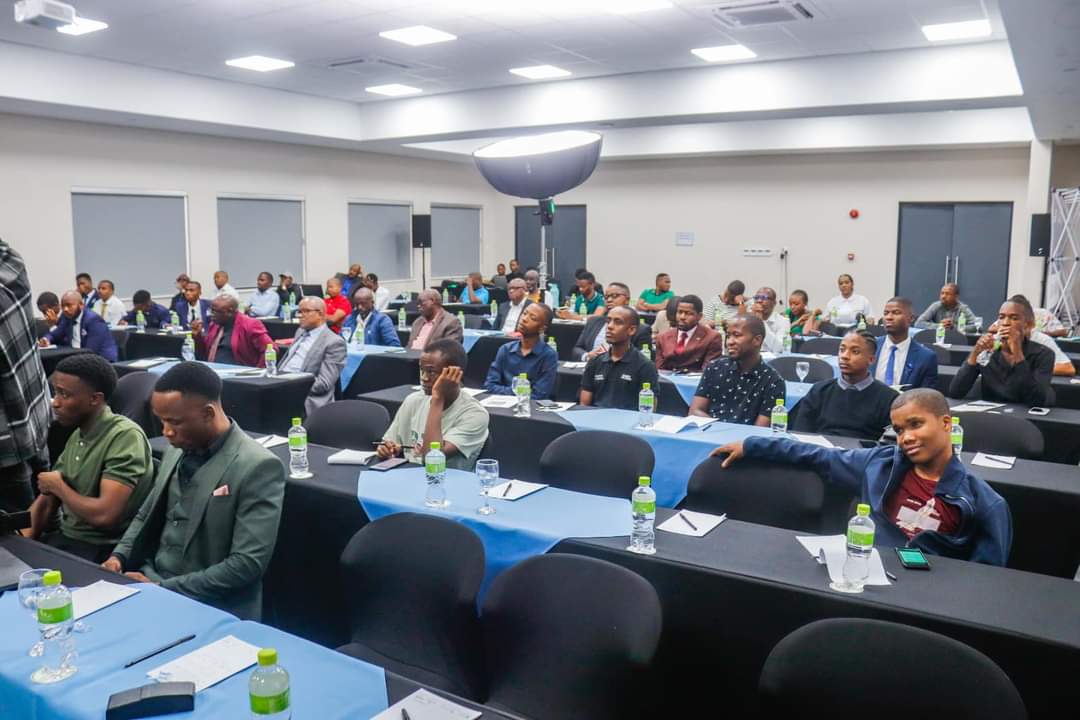On 19th November 2024, a gathering of Batswana men, educators, and experts convened in Gaborone for the Native Men’s Power Talk, an event designed to commemorate International Men’s Day. This impactful initiative aimed to address the modern challenges faced by men in Botswana and beyond, while highlighting the importance of empowering boys and men through emotional intelligence, mental well-being, and strong moral values.
Addressing Modern Challenges
The event served as a platform for candid discussions about the struggles that men face in today’s rapidly evolving society. Topics ranged from societal pressures to the mental health challenges that are often overlooked within male populations. As discussions deepened, experts underscored the necessity of breaking the stigma surrounding men’s emotional health and mental well-being. Men in Botswana, like in many parts of the world, have long been conditioned to suppress vulnerability, but this event marked a collective effort to deconstruct those harmful stereotypes.
Dr. Thabiso Motaung, a leading psychologist who was part of the panel, emphasized the importance of emotional intelligence as a key component for sustainable personal growth. “By helping men embrace emotional intelligence, we can open doors to healthier relationships, better career outcomes, and overall improved well-being,” he said. This resonated deeply with attendees, many of whom expressed their eagerness to incorporate these practices into their personal lives.
Empowering Boys and Men
At the heart of the Native Men’s Power Talk was a focus on youth empowerment. The speakers acknowledged the importance of guiding boys to embrace positive masculine traits while developing empathy and emotional resilience. “It’s essential that we instill in boys the tools to navigate life’s challenges with confidence and empathy, not just strength,” remarked one of the keynote speakers, a local educator.
In schools across Botswana, educators are increasingly looking at ways to integrate emotional and social learning into their curriculum. The initiative calls for increased attention to mentorship programs, wherein older men act as role models for younger generations, imparting knowledge on values such as respect, integrity, and perseverance.
Mental Well-being as a Priority
A significant part of the conversation centered on the mental health crisis among men in Botswana. The event sparked calls for mental health education in both the home and workplace settings. It is evident that there is an urgent need for open dialogue around male mental health issues, especially given the rising rates of male suicide in the region.
Participants discussed strategies for creating safe spaces for men to express their emotions, including therapy sessions, support groups, and outreach programs. These interventions are critical in reducing the stigma around seeking help and encouraging men to seek professional assistance when needed.
Strong Moral Values
Another key aspect of the Native Men’s Power Talk was the emphasis on strong moral values, which was seen as a cornerstone for fostering responsible citizenship and contributing to society’s broader well-being. Many participants agreed that ethical behavior, honesty, and accountability are essential not only for personal growth but for the upliftment of the community as a whole.
Leaders in attendance voiced their commitment to promoting these values through youth and community development programs. “Men who exhibit strong moral principles not only improve their lives, but they set an example for future generations. It’s about cultivating a culture of respect and mutual support,” one of the speakers noted.
Outcomes and Strategies for Sustainable Change
The Native Men’s Power Talk was not just a one-time discussion but a starting point for long-term action. The event culminated in the formation of a comprehensive plan to ensure the sustainability of the positive changes discussed. Key strategies include:
- Creating Peer Support Networks: Encouraging men to form support groups where they can share their struggles and solutions in a safe and non-judgmental environment.
- Increasing Access to Mental Health Resources: Partnering with healthcare professionals to provide easily accessible mental health services tailored for men, especially in underserved areas.
- Educational Campaigns: Launching national campaigns that raise awareness about the importance of emotional intelligence, mental well-being, and strong moral values in shaping a more positive future for men.
- Mentorship Programs: Establishing mentorship networks where older, successful men provide guidance and advice to younger boys, instilling important life skills and ethical values.
- Collaborating with Schools and Workplaces: Encouraging educational institutions and employers to integrate mental health support and emotional intelligence training into their curriculums and workplace programs.
The Native Men’s Power Talk in Gaborone was a powerful and timely event, highlighting the need for a holistic approach to men’s well-being. As Botswana continues to evolve, it is clear that empowering men through emotional intelligence, mental health awareness, and strong moral values will be key in shaping a healthier, more balanced society. The strategies discussed offer a promising roadmap for long-term change, and it is hoped that this initiative will continue to grow, providing men with the tools they need to thrive in all aspects of their lives.










